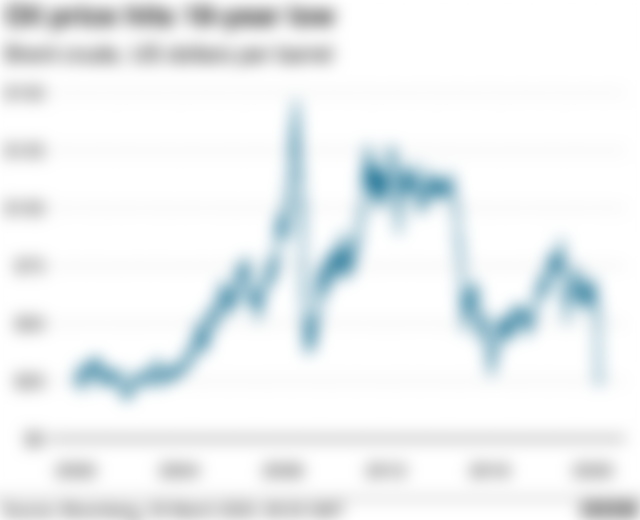Outbreaks of the corona virus have raised fears of extreme uncertainty not only in the health sector but also in the economy. Hundreds of millions of workers have already been laid off from various industries around the world, and wages have been slashed in many places. The current crisis is being compared to the Great Depression of 2008-09.
In addition to supply management, consumers, including factories, small and medium enterprises, also suffer from this condition. Nobel laureate Joseph Stiglitz has worked with other economists on the unprecedented recession of 2008. He recently published a book, People, Power, and Profits.
Stiglitz, a fierce critic of the Trump administration, said 30% of Americans would lose their jobs next month. It may increase later. In particular, he has focused more on the collapse of America and world trade as a result of capitalism. Here is a brief excerpt from Stiglitz's recent interview with Investopedia.
Inequality in income and health
Q: How long do you think this recession will last? What will be the relationship between the United States and the world in terms of income inequality?
Stiglitz: There is a lot of inequality in the United States itself. Covid-19 has made things clearer. Inequality in health is more evident than income and wealth. When it comes to nutrition, we have noticed that Lobdanka. This is the result of not considering health as a fundamental right.

Nobel-winning economist Joseph Stiglitz; Photo: The Guardian
Republicans are now saying the state should do everything itself. This means that the entire responsibility for education, health and social welfare will be in the hands of the Americans. The state has its own budget, they are unable to borrow.
The effects of the recession will be greater than in 2008. Subsidies will be reduced in all areas of education, welfare, research, immigrants will be forced to return to the country.
Q: Geographically and ethnically, who will suffer the most in this recession? As we have seen, even in the 10 years of the Great Depression, small and medium enterprises could not stand as before. What will be the situation in 5-10 years from today?
Stiglitz: The condition of marginalized people will be the worst. Especially those who work on a daily basis will have their income cut off.
Earlier in the recession we saw Americans who made a living through rent or pay checks sit on the road at once. Even if those who are in a high level or permanent job are secure, most of the earners in the family will either lose their jobs or fall prey to corona. The American government is responsible for this predicament. They fail to provide adequate health care and protection to citizens.
Even if affluent families and schools take classes online, the main purpose of education will not be fulfilled. Getting regular internet service and owning a computer are both difficult for poor people. The vacuum that is going to be created in education will have to suffer in the future.
The impact of globalization
Q: We have become accustomed to globalization. The epidemic will have a lasting effect on it. What do you think will be the impact on the supply system, product diversity?
Stiglitz: The non-globalization that the Trump administration has been talking about for a long time will come true. As a result, we will be deprived of comparative advantage, the quality of life will be reduced.
As a result of the epidemic, it has become clear that our economy is not really reliable. The whole market system is sitting on momentary gains. Lack of resilience has also hampered supply.

Before the epidemic, people were convinced that there was a permanent world market for oil, food, and clothing. But now understand, these are not available at work. From this situation the thought of becoming self-reliant comes to mind.
Covid-19 and oil fall
Q: What does the fall in oil prices indicate in the global crisis? Does that mean the oil tyranny in the Middle East is over, the oil companies will be on the way? What is its role in climate change?
Stiglitz: The fall in oil prices reminds us that global warming is a big problem right now. Since this mineral oil and gas is not good for the environment, its use should be reduced. But lower prices could increase demand, and people could use up excess oil. It's a two-way street.
Equal income and education for all
Question: The demand for equal income and education for all has become stronger during this time. Is it possible?
Stiglitz: The data says that people are focusing more on treatment than income education. It is a basic need.
The availability of higher education is still in question. Americans are struggling to get a higher education. The cost of our living is much higher. The idea of a debt-based education system like Australia or a low-cost education like in Europe could be useful.
But whatever you do, there is no speed without increasing income.

Subsidies in science and research
Q: Investment in science and research has increased due to the epidemic. Would we have done it without Kovid-19?
Stiglitz: As a result of the epidemic, we started working together. The government did not show foresight. President Trump and Mitch McConnell did not act despite the opportunity. As we have seen, ventilators, safety equipment - everything is in crisis. But at the end of the day I want unity.
Disaster has exposed our limitations and unpreparedness. In all countries, heads of state have realized that it is impossible to survive without science and research. Not just in crisis, but always in the interest of science.
Economy in crisis
Q: Say something in the language of economics. For example, what do you initially think of overcoming the current crisis?
Stiglitz: There is a saying in economics - resilience. That means coming back to where we were before. This theory was not discussed before the epidemic. But now it is happening. It is not known whether it is possible to return to this resilient state due to mismanagement of capitalism and globalization.
Second, external influences on climate change. Just as we are now united in urging the evacuation of the affected person, so is unity in the climate crisis.



So sad... It's really very hurt touching article... This article touch my hurt 😥